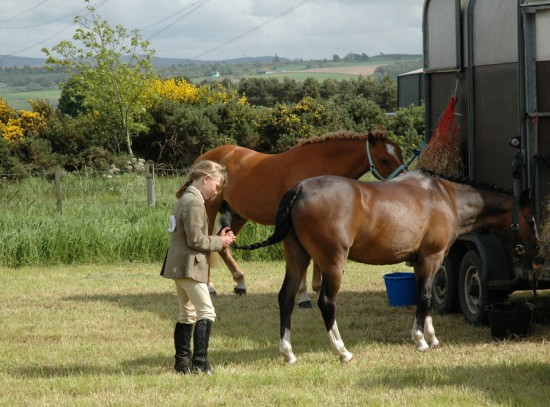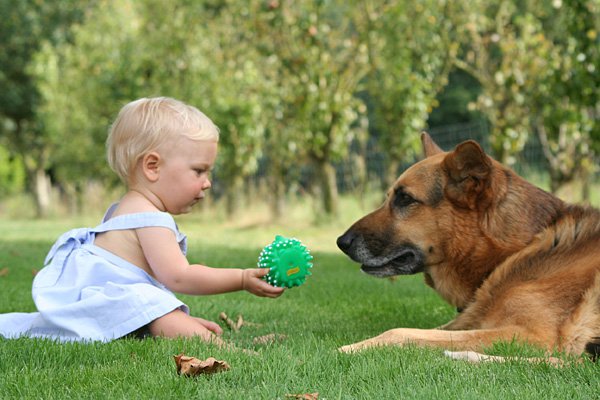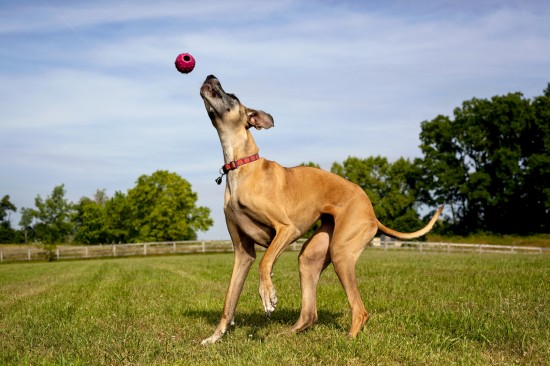
Who would have thought that a simple change in diet can stop aggressive dog behavior? According to a study done at the Animal Behavior Clinic, Cummings School of Veterinary Medicine at Tufts University in Massachusettes, it is true.
Aggressive dog behavior can be a major problem for dog owners. In some cases, their dogs are so aggressive and threatening that they are afraid of their own pets. Dogs can sense when someone is afraid and this only magnifies the problem.
Such behavior has led to many heartbreaks through injuries, loss of life and loss of a pet. The ones that end up in shelters are frequently put down as they are considered too dangerous to put up for adoption. This is unfair to the dog because there could be another reason for his aggression.
High-protein diets are shown to be a major factor, according to the study. After switching to a low-protein diet, many owners in the study group reported a huge reduction in their dog's aggression. While one or two instances of improved behavior might be limited proof, the fact that the results could be duplicated by repeatedly changing from a high to a low protein diet is real, measurable evidence.
One of the problems with some commercial dog foods is that they contain too much protein for most dogs. Dog owners think that high-protein is good, but that is only true if the dog is under one year old, pregnant, nursing or is a working dog. In these circumstances, a high-protein diet provides many benefits that those dogs need. For example, puppies require protein to help their bodies to grow properly. Too little protein can lead to serious problems.
Working dogs need a lot of energy to do what they do and for this, they require protein that will provide the energy and help them stay healthy and fit. With insufficient protein intake, the dog will get its energy from the body itself instead of from the food, which would be an unhealthy situation.
According to the study, puppies under one year need a diet of 28% protein content. High-performance dogs can benefit from 32% protein diets.
Dogs have a tendency, or more precisely an instinct, to protect their territory. To do so effectively, they must have some level of aggression. An owner of such a dog might think that this is normal, which it is, but if the aggression is excessive, it is a problem that must be dealt with quickly.
Switching to a low protein diet might be all that is required. Of course, some dogs have behavior problems that are more extensive and require a different kind of treatment. Dogs that have been abused, isolated or malnourished are likely to have issues that acquire a dog behavior specialist to overcome them.
Your first step, then, is to change to a low protein diet to see if you notice any improvement. Make sure you give the test sufficient time and that you can repeat the results. For instance, put your dog on a low protein diet for a week to see if there is any change. If there is improvement, put him back on the old diet for a week and see if he reverts to his previous aggressive behavior.
This will give you a good indication of whether or not the problem is directly related to diet. If the aggressive dog behavior persists, speak to your veterinarian or a dog behavior specialist for other solutions.
Sylvia has owned dogs all her life and has put together this special free report, "How To Pick The Right Dog Training Tools" to help you. For more valuable advice, take a free trial of Sylvia's extensive Puppy Parenting Course which offers more valuable advice on how to raise and train a dog properly. It covers everything from choosing the right dog for you and on through all the stages of the puppy's development.
 Seven Interesting Facts About Tortoiseshell And Calico Cats
Seven Interesting Facts About Tortoiseshell And Calico Cats
 Information About Reptiles For Potential Pet Reptile Owners
Information About Reptiles For Potential Pet Reptile Owners
 Has Your Horse Got A Hearing Problem?
Has Your Horse Got A Hearing Problem?
 Freshwater Angelfish (pterophyllum Genus)
Freshwater Angelfish (pterophyllum Genus)
 Problems With Loading And Transporting Your Horse
Problems With Loading And Transporting Your Horse
 Expert Veterinarians for your lovely pets in Port Coquitlam
Expert Veterinarians for your lovely pets in Port Coquitlam
 The Afghan Hound And Cancer
The Afghan Hound
The Afghan Hound And Cancer
The Afghan Hound
 Telling The Difference Between Dominance And Hyperactivity In The Dog
Telling The Diffe
Telling The Difference Between Dominance And Hyperactivity In The Dog
Telling The Diffe
 Is The Finnish Spitz Dog A Good Domestic Pet?
Is The Finnish Sp
Is The Finnish Spitz Dog A Good Domestic Pet?
Is The Finnish Sp
 Do Ferrets Smell, And Is There Anything You Can Do About This?
Do Ferrets Smell,
Do Ferrets Smell, And Is There Anything You Can Do About This?
Do Ferrets Smell,
 5 Great Ways To Keep Pet Hair Around The Home Under Control
5 Great Ways To K
5 Great Ways To Keep Pet Hair Around The Home Under Control
5 Great Ways To K
Copyright © 2005-2016 Pet Information All Rights Reserved
Contact us: www162date@outlook.com